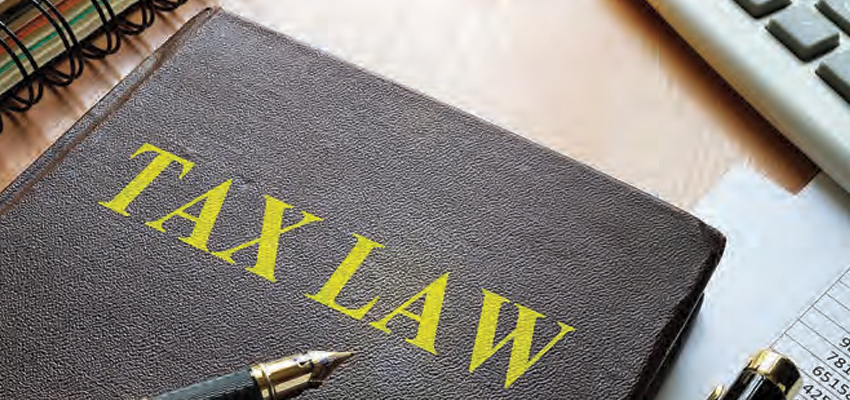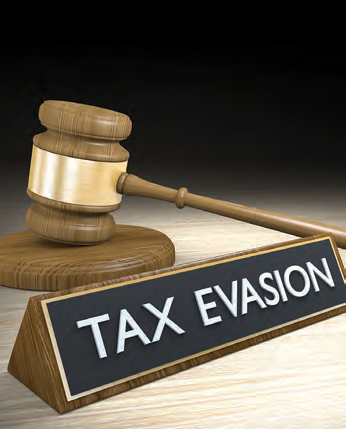Twists in a Taxman’s Tales

Being a taxman, one encounters a variety of situations. Some heart-warming, some distressing, but mostly challenging. They throw up glimpses of human nature and the extent that people go to hoodwink the system and avoid paying tax
I was sitting in my study, planning to write my column for Corporate Citizen. I juggled around many topics and this process forced me to go down memory lane. I remembered many good and bad experiences as a taxman. I remembered the high in my life when I was felicitated by the Finance Minister on the eve of Independence Day of 1985, for being one of the best investigators in the country. I remembered the low in my life when I was scared for the safety of my life and of the members of my family. I had received threatening telephone calls that my wife would be kidnapped from her workplace and she would be raped and killed. Today, I wonder how even the life of an unknown bureaucrat can have many ups and downs to be remembered and written about.
CELEBRITY THREAT
I was working in the investigation wing of the income tax department in Mumbai. The apex body in Delhi selected a team of officers, with me as the team leader for investigating a well-publicised event. Our team was successful in discovering hidden evidence in the form of documents relating to a mammoth tax evasion by a well-known celebrity. The celebrity in question tried his best to sabotage the investigation, first by evasive answers and then by unethical behaviour. Our team remained stuck to our stand and when I was in the process of writing the investigation report based on the evidence found, I was called by my senior boss. I was told not to highlight the damaging evidence against the celebrity as he was facing pressure from the top echelons. I told him that I would not in any way lighten my case against the celebrity and that if he was unhappy with me then he could get me transferred. He seemed to be very angry with me. I took the opportunity to cool him down by saying that as a younger brother, I would request him to keep away from this case, as it was a case which could cause problems to him too, when the government changed. Finally, it had a huge impact on the celebrity but no one transferred me.
‘I remembered the high in my life when I was felicitated by the Finance Minister on the eve of Independence Day of 1985, for being one of the best investigators in the country. I remembered the low in my life when I was scared for the safety of my life and of the members of my family. I had received threatening telephone calls that my wife would be kidnapped from her work-place’
CONVOLUTED EVASION
As a young officer in the investigation wing of the financial capital of the country, I used to be very enthusiastic to fight black money. I used to keep learning from knowledgeable well-wishers as to how to fight this great evil. One such well-wisher advised me to identify the comas a young officer in the investigation wing of the financial capital of the country, I used to be very enthusiastic to fight black money. I used to keep learning from knowledgeable well-wishers as to how to fight this great evil. One such well-wisher advised me to identify the commodities which attract the highest customs duty on import and investigate such cases, especially, about their movement once they left the dockyard. He told me that such tricks were played to escape customs duty and then such goods moved in the black market and evasion of income tax was incidental to the evasion of the high rate of customs duty.
For making enquires on imports, I was required to know the customs duty laws and also about the various licenses needed for imports (pre-1991 era when licenses were needed). I gathered the requisite knowledge in a short time and then identified the kingpins in steel import. I also got to know the modus operandi of the big importers and then waited till their big consignments reached India. Search actions were conducted at big ports simultaneously, as consignments were being imported through different ports to hide the size of the imports. The movement of consignments was prohibited by me under the specific provision of income tax and were seized.
The on-paper importers of the consignments were small people and they had not even invested in the imports. Customs duty was being paid in cash by proxies of the kingpins. The imports were being financed from banks in Singapore and on enquiry it was revealed that the account holders were shady and suspicious. It was believed that unaccounted cash from India used to go as hawala money from dubious sources, and that money used to be used as the seed money for the imports.
CIRCLES WITHIN CIRCLES
The modus operandi was to send the high-value imports to the black market and then generate huge cash out of them. The big fish importers used to save customs duty as well by first under- invoicing and then by compromising with the customs authorities. Since the imported commodities used to be high duty categorised commodity (steel), they used to get sold like hot cakes in the black market. Even the buyers used to feel comfortable, as they used to buy from their unaccounted tax evaded money.
What I discovered was a vicious circle of black money from the beginning to the end. On a lighter note, the real kingpin was raided at his posh residence. He pretended to be a domestic help for a considerable amount of time to escape questioning. The tax effect out of this exercise was mind-boggling and became newspaper headlines.
‘In the course of my inquiry, the chairman of the group visited my office, with the offer of all kinds of unethical inducements. When he failed in his attempts, I started getting serious threats’

COMMISSION KISSA
Another investigation was that of a well-respected top industrialist of the country. This industrialist belonged to an old business family and his companies produced goods for mass consumption. The products of the group commanded a high brand value. There was no reason to suspect their bonafides.
However, while scrutinising their tax returns, I found that their flagship company was booking commission payout as expenditure to the tune of Rs.50 lakhs to Rs.150 lakhs. I got a gut feeling that the payout was shady and I picked it up for enquiry.
Commission payout can be allowed as deductible expenditure in the computation of income, only when the payment is a genuine business expenditure, wholly and exclusively for business. On being questioned, the representative of the company replied that the commission was being paid year-wise to get the best price for goods sold by the company to a defence establishment of the Government of India.
When I made enquiries with the officers of that government establishment I was told that they directly dealt with the manufacturers of the goods and that every price revision was done by mutual consultation between the two parties and no third party or commission agents were involved. They said that they were bound by the Government of India rules which do not permit third-party mediation.
Armed with this vital evidence, I summoned the payees of the commission payouts of the company. Despite deep interrogation, they failed to explain how they were successful in getting the price revised when commission agents were not permitted by the defence establishment. I asked them to identify the government officers or where they were located in their offices if they could not remember their names.
I proceeded further and examined the bank accounts of the payees and found that they had made payouts out of the money received from the company to some sale agents. The bank accounts of sale agents were also located and finally, I found that the entire money was withdrawn in cash from the accounts of the sale agents. Thus, the investigation revealed that the commission payout by the company was without any legitimate business service, and the same was ultimately withdrawn in cash after going through two stages of banking.
In the course of my inquiry, the chairman of the group visited my office, with the offer of all kinds of unethical inducements. When they failed in their attempts, I started getting serious threats. I was offered police protection by the head of my office, which I refused.
‘The on-paper importers of the consignments were small people and they had not even invested in the imports. Customs duty was being paid in cash by proxies of the kingpins. The imports were being financed from banks in Singapore and on enquiry it was revealed that the account holders were shady and suspicious’
TELE-TWIST!
I had the habit of watching TV programmes those days. I used to enjoy TV entertainment programmes. They were the early days of private channels when they used to come up with novel attractive shows to wean away viewers from DD channels. While watching a private channel show, I started wondering about the tax being paid by private channels when they were earning so much from advertisements.
I found (it was in the early eighties) that the private channels operating then had satellite up-linking arrangements in Hong Kong or Singapore. They used to pay for such up-linking arrangement through sister companies based there. The down-linking was done mainly in India and also in some other foreign territories where they had viewers for Hindi programmes. The programmes were created with Indian taste in mind and the companies in India used to advertise their products along with the shows on those channels.
The income from such advertisements should have been taxable in India, as the advertisements addressed mainly Indian viewers, and the advertisers were Indian companies. I was quite surprised that the advertisement money was being remitted to sister companies based abroad without paying any tax or even TDS. Tax was being paid only on the commission paid to Indian collecting agents of these private channels who used to solicit advertisements in India and collect them for the foreign principals. Content creators in India used to get money from the foreign companies for the period of duration for which their programmes were aired. So definitely some tax was being paid in India, but the bulk was escaping assessment.
These channels stated that no tax was payable in India on advertisement income, as satellite services were being rendered outside India. I explained to them that the satellites were in the orbit and not located in any country. Up-linking was definitely done outside India, but down-linking was done in India. Incomes on advertisements come from Indian companies during programmes for Indian viewers. I made an elaborate report to the CBDT (the income tax apex body) and I had some intellectual satisfaction when it issued a circular on how advertisement incomes of private channels were to be taxed. I was appreciated for my suo moto study.